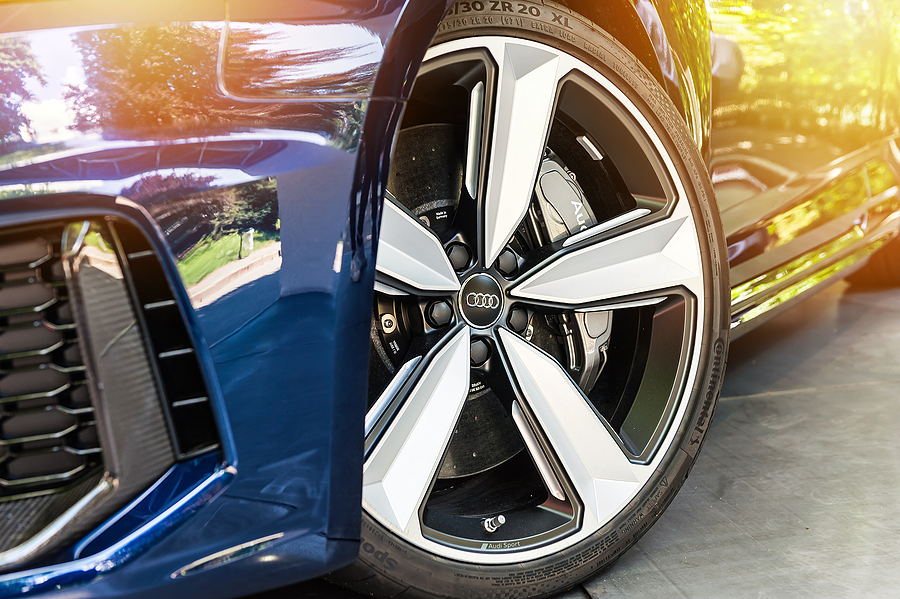Owning an Audi brings the thrill of German engineering excellence, but maintaining that precision requires dedicated care. Your A4, A6, or Q5 represents sophisticated technology that demands more than basic automotive maintenance—it requires an understanding of German car care principles that keep these luxury vehicles performing at their peak.
Regular Audi maintenance isn’t just about preventing breakdowns; it’s about preserving the driving experience you invested in. When you follow proper Audi scheduled maintenance, you protect your vehicle’s performance, maintain its resale value, and avoid costly repairs down the road. This comprehensive guide will walk you through essential maintenance tasks that every Audi owner should understand, from routine oil changes to recognizing early warning signs of common issues.
Whether you’re comfortable performing basic maintenance yourself or prefer working with a certified German car mechanic, understanding these fundamentals will help you make informed decisions about your Audi’s care.

Recommended Car Maintenance for Audi
Essential Oil Changes: The Foundation of Audi Care
Oil changes form the cornerstone of Audi maintenance, particularly because these engines are engineered for high performance. Your A4, A6, or Q5 requires synthetic oil changes every 10,000 miles or 12 months, whichever comes first. This extended interval is possible because Audi specifies high-quality synthetic oils that maintain their protective properties longer than conventional oils.
However, older Audi models can develop oil sludge buildup if previous owners extended oil change intervals beyond recommendations. This thick, sticky residue can clog oil passages and damage engine components. If you’ve recently purchased a used Audi, consider shortening your initial oil change intervals to help clean the system.
Always use Audi-approved synthetic oil that meets VW/Audi specifications. Using incorrect oil viscosity or quality can trigger warning lights and potentially void warranty coverage. The investment in proper oil pays dividends in engine longevity and performance.
Brake System Maintenance: Stopping Power You Can Trust
Audi’s advanced braking systems require regular attention to maintain their impressive stopping power. During your routine inspections every 10,000 miles, check brake pad thickness through the wheel spokes. Most Audi models feature wear indicators that create a squealing sound when pads need replacement.
Brake rotors on performance-oriented Audis can develop scoring or warping, especially if you frequently drive in stop-and-go traffic or enjoy spirited driving. Watch for steering wheel vibration during braking, which often indicates rotor issues requiring professional attention.
Brake fluid replacement every 40,000 miles prevents moisture absorption that can lead to brake fade and internal component corrosion. This service requires bleeding the entire brake system and should typically be handled by a qualified Audi repair specialist.
Tire Maintenance: Maximizing Performance and Safety
Proper tire care extends beyond checking air pressure, though maintaining correct pressure is crucial for your Audi’s handling characteristics. Check tire pressure monthly using the specifications found on your driver’s side door jamb. Audi’s sophisticated suspension systems are calibrated for specific tire pressures, and deviation affects both performance and fuel economy.
Tire rotation every 10,000 miles helps ensure even wear patterns, especially important for Audi’s sport-tuned suspensions that can create irregular wear. Many A4, A6, and Q5 models use different front and rear tire sizes, requiring side-to-side rotation rather than traditional cross-patterns.
Watch for premature or uneven tire wear, which can indicate alignment issues or suspension problems. Audi’s adaptive suspension systems, while providing excellent ride quality, can develop issues that manifest as tire wear patterns before you notice handling changes.
View Our Audi Repair and Service Options ⚙
Critical Fluid Checks: Keeping Everything Running Smoothly
Beyond engine oil, your Audi requires several fluid systems that need regular monitoring. Coolant system maintenance is particularly important because these engines run at high operating temperatures. Check coolant levels when the engine is cold, and watch for signs of leaks around the water pump or expansion tank—common failure points in Audi vehicles.
Power steering fluid (in models not equipped with electric steering) should be checked monthly. Low fluid levels can indicate leaks that, if left unaddressed, can lead to expensive steering system repairs.
Don’t overlook windshield washer fluid, especially during winter months. Audi’s advanced headlight cleaning systems on some models consume significant amounts of washer fluid, requiring more frequent refills than typical vehicles.
Air Filter Replacement: Breathing Easy
Your Audi has two air filters requiring different replacement schedules. The engine air filter, replaced every 30,000 miles, protects against debris that could damage internal engine components. A dirty air filter reduces performance and fuel economy while potentially allowing contaminants into the direct injection system.
Cabin air filters, changed every 20,000 miles, maintain interior air quality and HVAC system efficiency. Clogged cabin filters can strain the climate control system and reduce airflow, making your heating and cooling systems work harder.
Spark Plug Service: Ignition System Excellence
Audi’s high-performance engines place significant demands on ignition systems. Spark plugs typically require replacement every 40,000 miles, though this can vary based on driving conditions and fuel quality. Carbon buildup from direct injection systems can affect spark plug performance, making regular inspection important.
Ignition coil failure is a common issue in many Audi models, often causing misfires that trigger check engine lights. If you experience rough idling, poor acceleration, or engine codes, have the ignition system diagnosed promptly. Continuing to drive with misfiring cylinders can damage catalytic converters and other expensive components.
Battery Care: Reliable Starting Power
Audi’s sophisticated electrical systems place high demands on the battery, making proper battery care essential. Clean battery terminals monthly and test charging capacity during your 20,000-mile services. Extreme weather conditions, particularly cold temperatures, can significantly impact battery performance.
Many newer Audi models feature battery monitoring systems that track charging capacity. If you receive low battery warnings, address them promptly to avoid being stranded and potential damage to electrical components.
Professional Inspections: Expert Eyes on Your Investment
While many maintenance tasks can be performed by dedicated owners, regular professional inspections provide expert assessment of complex systems. Certified Audi technicians can identify developing issues before they become expensive problems and use specialized diagnostic equipment to assess electronic systems.
Professional inspections become increasingly important as your Audi ages. Components like the adaptive suspension, electronic stability systems, and advanced engine management require specialized knowledge and tools for proper evaluation.
RECAP
Proper Audi maintenance preserves the engineering excellence that drew you to these vehicles initially. Following Audi scheduled maintenance guidelines, using quality parts and fluids, and addressing issues promptly will keep your A4, A6, or Q5 delivering the performance and reliability you expect.
Remember that maintenance is an investment in your vehicle’s future performance and value. The cost of regular maintenance pales in comparison to major repairs that result from neglect. By staying proactive with your Audi care routine, you ensure years of driving satisfaction from your German-engineered vehicle.
For expert Audi maintenance and repair services, contact Autohaus Dierolf in Carmel, Indiana. Our certified technicians specialize in German automotive service, using state-of-the-art diagnostic equipment and genuine Audi parts to maintain your vehicle’s optimal performance.
Schedule Audi maintenance Today!
Related Post: The Ultimate Guide to Audi: Innovation, Performance, and Luxury


